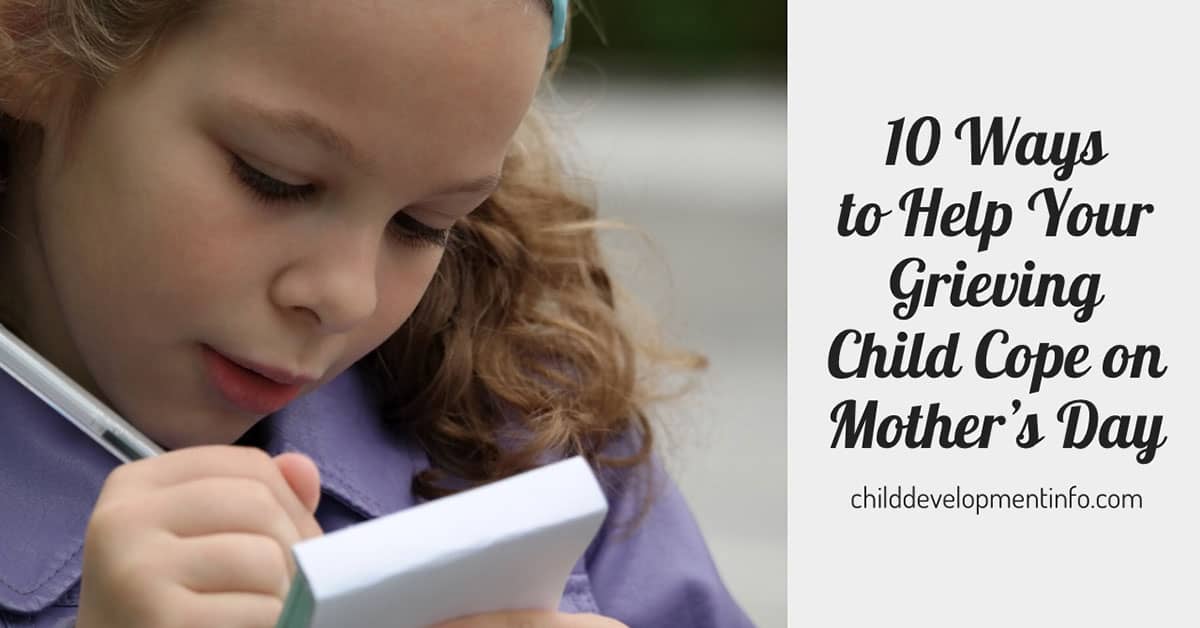
Three months ago, I lost my mother to cancer. Her death was very sudden and unexpected because no one, including my mother herself, knew she was dying. It has been the single most devastating experience of my life. I’m grateful to have experienced 43 years with her, as I can’t help but imagine how much more painful and confusing it may have been to lose her when I was a young child. As an adult, sorting out feelings of denial, anger, and sadness over the loss of a loved one is incredibly difficult; imagining having to deal with this as a child feels almost impossible.
As I look onto Mother’s Day, I’m grateful to have tools and coping skills to manage this profound sorrow and wish to share some of the ways you can help your children to do the same, while remembering her on this special day.
Here are some things to keep in mind as you support your children:
- Keep the lines of communication open and encourage your kids to share their thoughts and feelings while not pressuring them to do so.
- Listen to them tell stories about their mother. The act of sharing stories can be very healing for a child.
- When it comes to emotions, validate that it’s okay to be sad and even angry, but gently remind your kids that their mother wouldn’t want them to feel this way.
Try to help your children focus on happy memories of their mother and celebrate these cherished moments whenever possible. It’s important to help them continue to feel a connection to their mother and foster the significance of her in their lives. Helping to maintain this bond will have a positive impact on your children that will last a lifetime.
Following are ten creative ways to help grieving children remember their mother on Mother’s Day.
Your kids may choose to:
- Create and decorate a memory box. They can fill it with items that remind them of her, such as jewelry, photographs, pieces of clothing, glasses, her favorite quotes, poetry, etc.
- Write a letter or make a card to tell their mother what they’ve been up to since she passed away, as well as anything else they would like to share. They may choose to bring it to the cemetery and read it aloud at her grave or where her ashes were scattered.
- Pretend to “call heaven.” Depending on your family’s religious beliefs, this can be a very therapeutic tool for children to pretend to have a conversation with their deceased parent and share whatever is on their mind.
- Keep family traditions going that were important on Mother’s Day in the past, such as planting flowers in her favorite color.
- Make their mother’s favorite meal and dessert and share it as a family.
- Create a memory book, which includes photographs of them with their mother as well as their favorite memories.
- Write a family story and add illustrations.
- Play her favorite music.
- Make or purchase a new picture frame and put one of their favorite photographs of her in it.
- Ask their mother’s relatives and friends to share some of their favorite memories with them.
Provide your children with space and time to speak to you about their feelings and allow them to choose how they would like to remember their mom on Mother’s Day. When they’re ready to share with you, listen with loving acceptance and non-judgment. There are no wrong feelings about the loss of a loved one, and it’s okay if they choose not to participate in an activity.
Remind your kids that they will always have a mother and that will never change; their mom didn’t stop being their mom the day she passed away. Continue to encourage open communication with your children as well as opportunities to remember their mother, because honoring mothers doesn’t have to be just on Mother’s Day; it’s something we can do every day if we choose.


